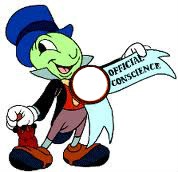Exploration and knowledge of ourselves
What does the reader think about his world, about the world he is living in? Of course, there is a close world, the environment of the person, and there is a global world, that which we usually only hear about, perhaps through the news. Perhaps the reader of these lines is a well-to-do person, without serious problems, who looks at the great world problems by distancing himself, or perhaps on the contrary is an activist for human rights, or for world peace. Even the reader may not be enjoying a pleasant nearby environment. We have all the possibilities.
This blog, like many others, is dedicated to disseminating and sharing a certain type of knowledge related to the inner space of the person; In modern advanced societies we tend to be totally turned outside of ourselves, and our inner space is quite forgotten, and therefore these writings are predestined to have almost no audience. Indeed, observing the whole range of possible readers, we can perceive that there are many people who, so to speak, seem to have a well-organized life and a “well-furnished head”, that is, a highly organized mind, and with coherence of ideas. and contents; strongly intellectualized people, natural product of our model of society and education, who have accepted, who have internalized ideologies and a philosophy of life that are useful for navigating through existence.
These people do not seem to suffer for them or for the misfortunes of others, the torrent of bad news that we see daily in the media does not affect them at all; it is not necessarily that they are not empathic, nor that they are indifferent to the suffering of others, which can also be, it is rather that they are “vaccinated” against all kinds of doubts or emotional discomfort, they take a pragmatic, necessarily distant position. Hardly this type of people will read any of the articles of this blog or others of the same style, as much will not pass the owner and the first paragraph, why would they be interested? They will see it simply as a waste of time. Their interior works like a clock, it does not bother them at all, they do not need or want to access it.
Motivation
If we put it this way, in terms of utility, who can be useful to investigate the issue of interior life? Leaving aside the application of attention-mindfulness techniques to increase productivity, which in fact serves only a particular aspect of our interior facets, attention, but only to remain focused on the outside, on the productive, we have the people who they are not fully satisfied with what they see on that exterior, with what they themselves and / or others live. There may be a concern, a desire to know more about the why of things, beyond the descriptions given by science, very detailed, very technical, but superficial in the sense of not answering the question of … why it is so?, or may feel no longer a concern, but a true restlessness, an inability to accept things as they occur, as they seem to be.
Depending on the degree of concern, because in people, as diverse as we are, we find the whole range of concerns to any topic, from total indifference to absolute dedication and even obsession, depending on that degree, the person can be a simple reader with some curiosity, or it can be someone who gets involved and practices Yoga, Qigong, meditation, etc, and this in varying degrees, from sporadic practices seeking a well-being to making practice a way of life. It is this restlessness that motivates the person to submerge in herself, in an unknown inner space, since it has not been explored previously, on the contrary, it has been rather ignored. And when exploring it, it may be that things move, that preconceived ideas fall, ideas about the world and about the person, about their self-image, their own concept of themselves. It is an exploration of unknown terrain that can change you at the root, and the unknown and deep changes always scare, therefore, to explore in depth one’s interior spaces requires courage and determination, demand constancy and a good motivation to move forward.
Deep, strong motivation
Most people interested in cultivating themselves stay on the surface, like those children we see on the beaches who dive into the shallow water with a tube to breathe, and they watch the bottom, only one meter deep. If they entered the sea, they would see that there, below the surface, there is an immense world to discover, not without dangers, of an incredible depth and depth. But to explore it requires a good team and a training, and of course, a strong motivation. This simile of underwater exploration shows us another important aspect of the exploration of ourselves: when we immerse deeply within, what we find is not only our inner space, but the inner space, as well in general; it stops being a local exploration, close, to become global, universal: the deep mind is identical in all people, what differentiates us is the superficial. At great depth, there is unity. Therefore, our own individuality is blurred, we are inseparable part of a whole. For explore at that level of depth, without fear of what you will find, without fear of personal, radical transformation that will happen to you, what kind of motivation is needed? Few people come to venture so far.
Because many are called, but few are chosen. Matthew 22:14
I think that no one will be able to go deep until they lose themselves simply because of a basically selfish motivation, such as being well, increasing one’s well-being, or satisfying a personal desire for knowledge. If your motivation is to do yourself a favor, in any of the many ways to do it, when you reach such a deep level that the “yourself” begins to fade, at that level you will stop, then, what’s the point? continue to the point that the subject seeking his satisfaction disappears as such subject? That will be an insurmountable barrier that will prevent further deepening, because that level implies the disappearance of the subject that wants to know.
So who will be able to continue deepening even assuming the fact that he will lose himself? The only motivation powerful enough to overcome that wall that represents your own dissolution is love, not love focused on yourself, but Love with a capital letter. It is that Love that, according to legend, led the Buddha to abandon his luxurious environment to seek enlightenment, because he was unable to assimilate, to accept, the suffering of others, to see them in misery, in sickness, old age and death, could not continue living as before after knowing it. This non-acceptance of suffering in general, not of one’s own suffering, but of suffering itself, is an expression of impersonal, general Love, and provides the necessary strength to deepen the internal, hidden reality, and reveal it, even at the risk of ceasing to be what you thought you were: the psychological “ego”.
It is a radical nonconformity, the person is unable to accept so much suffering from others; it is to have a connection with everything, together with a wanting to know why. When you have that combination, and you also have a high degree, is when the person forgets himself, his burning desire to know and do something about suffering have the power for to take us to the depths of the Self, and there, at last you will know, and you will understand the why of everything.



 What is a soul? Here, we named soul the ultimate subject within us, beyond thoughts. Is not mind nor body, some people have the intuition of their existence, other people have gotten some direct contact, means their mind have perceived the soul, impressing in the mind a sense of stable identity beyond the world, and a wonderful peace impossible of forget.
What is a soul? Here, we named soul the ultimate subject within us, beyond thoughts. Is not mind nor body, some people have the intuition of their existence, other people have gotten some direct contact, means their mind have perceived the soul, impressing in the mind a sense of stable identity beyond the world, and a wonderful peace impossible of forget.

 A high-sounding title, yes, I know it. But is my feeling, the feeling that comes to me after my daily meditation, after I was reflecting about suffering, a central concept in the Buddha’s teachings.
A high-sounding title, yes, I know it. But is my feeling, the feeling that comes to me after my daily meditation, after I was reflecting about suffering, a central concept in the Buddha’s teachings.



 I write this article not to regret about the human condition, which would be a useless act, but to try to put some light on some issues;
I write this article not to regret about the human condition, which would be a useless act, but to try to put some light on some issues; Human beings also need simple principles of a higher level than we can think of, principles that we should not forget, on the contrary, we should continually review our actions and thoughts to verify that we are not losing ourselves in the shadow ship of our mind
Human beings also need simple principles of a higher level than we can think of, principles that we should not forget, on the contrary, we should continually review our actions and thoughts to verify that we are not losing ourselves in the shadow ship of our mind  Recently I saw a low-cost one but interesting movie; the protagonist, a young man in their thirties, living in love with a woman, die in a car accident. Probably due to their strong attachment to their nice live and his couple, their soul remain into their home, wandering. The look of our guy is very classical: a phantasm covered with a white sheet with two holes acting as eyes. He can see but he can’t talk, nor communicate in any way. The phantasm contemplate their couple, depressed, crying, for a while, then, she start to dating with other man … time flies, the woman sell the house, so the phantasm become alone in the empty house, observing, new people come to the house, … at last, after many years of wandering, the phantasm suddenly realizes their time has passed away, realizes there are nothing there connected with him, and he become free of attachment, and disappear from this material world. Being a movie not dedicated to achieve high amounts of incomes, the action is very slow, with long shots showing the monotone “life” of the phantasm, doing nothing, only observing, watching the house. I think this slow speed, that at first worried me due to the lack of habit (you know, all the commercial movies are on the other side, action and more action, with very fast conversations, etc) was necessary for really understand the mental state of a person strongly attached to something that has ceased to exist, waiting unconsciously for a impossible return. I didn’t be aware in that time, but now I realize the message really penetrate into my subconscious.
Recently I saw a low-cost one but interesting movie; the protagonist, a young man in their thirties, living in love with a woman, die in a car accident. Probably due to their strong attachment to their nice live and his couple, their soul remain into their home, wandering. The look of our guy is very classical: a phantasm covered with a white sheet with two holes acting as eyes. He can see but he can’t talk, nor communicate in any way. The phantasm contemplate their couple, depressed, crying, for a while, then, she start to dating with other man … time flies, the woman sell the house, so the phantasm become alone in the empty house, observing, new people come to the house, … at last, after many years of wandering, the phantasm suddenly realizes their time has passed away, realizes there are nothing there connected with him, and he become free of attachment, and disappear from this material world. Being a movie not dedicated to achieve high amounts of incomes, the action is very slow, with long shots showing the monotone “life” of the phantasm, doing nothing, only observing, watching the house. I think this slow speed, that at first worried me due to the lack of habit (you know, all the commercial movies are on the other side, action and more action, with very fast conversations, etc) was necessary for really understand the mental state of a person strongly attached to something that has ceased to exist, waiting unconsciously for a impossible return. I didn’t be aware in that time, but now I realize the message really penetrate into my subconscious.



